◊ By Neetole Mitra
Visit ORGANIC SHOP by Pure & Eco India
In August 2019, Greta Thunberg sailed across the Atlantic on her eco-friendly Malizia II, attracting eyeballs globally. Her words and conviction had the desired effect and the world got talking about sustainability and carbon-neutral living choices.
Though a lot of the discourse focused unnecessarily on her age, the general consensus still hovered on a capitalist stance.
Behind the well-meaning encouragements lay the not so secret belief that caring for the planet was a future-generation problem and it’s good that feisty teenagers were stepping out of their comfort zones to address the issue. No one saw the pandemic coming to prove them wrong. No, it isn’t a future problem. It is a mainstream burning, raging issue that needs the centre stage this moment.
So, I reached out to those who’re trying to swim against the tide and go back in time to a life of less consumption and greater meaning.
PETRICHOR FARMS
“It started with guilt. We didn’t want to bring home a bundle of plastic every time we went out to buy food,” says Sweta Pradhan, who has been living off the land and working hard to create a green community in West Bengal’s Kalimpong, along with her partner Sidhartha Blone.
The couple has jointly founded the aptly named Petrichor Farms, a permaculture farm and sustainable education centre.
“It was also fear of what we were consuming. We found ourselves questioning our eating choices and didn’t want to live on preservatives and pesticides anymore. We realised if something was harming our body it was also harming the land,” says Pradhan.
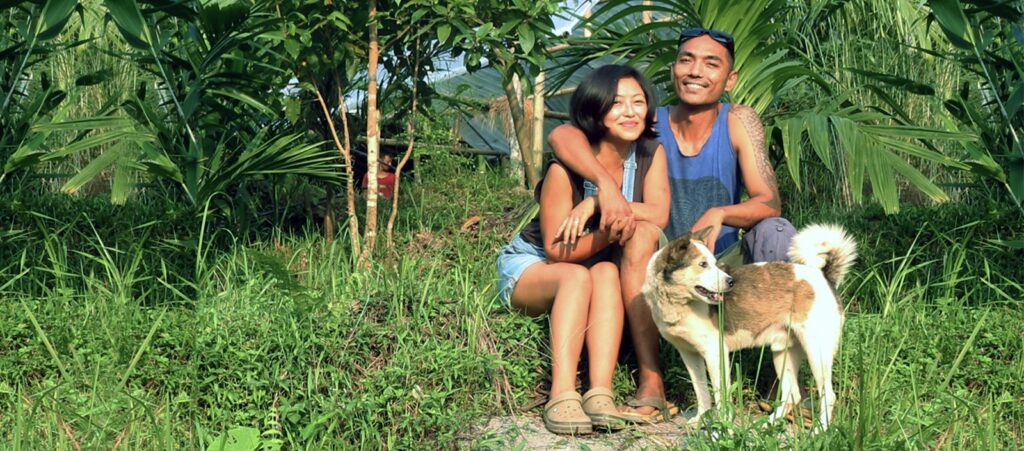
Sidhartha Blone and Sweta Pradhan, Founders, Petrichor Farms
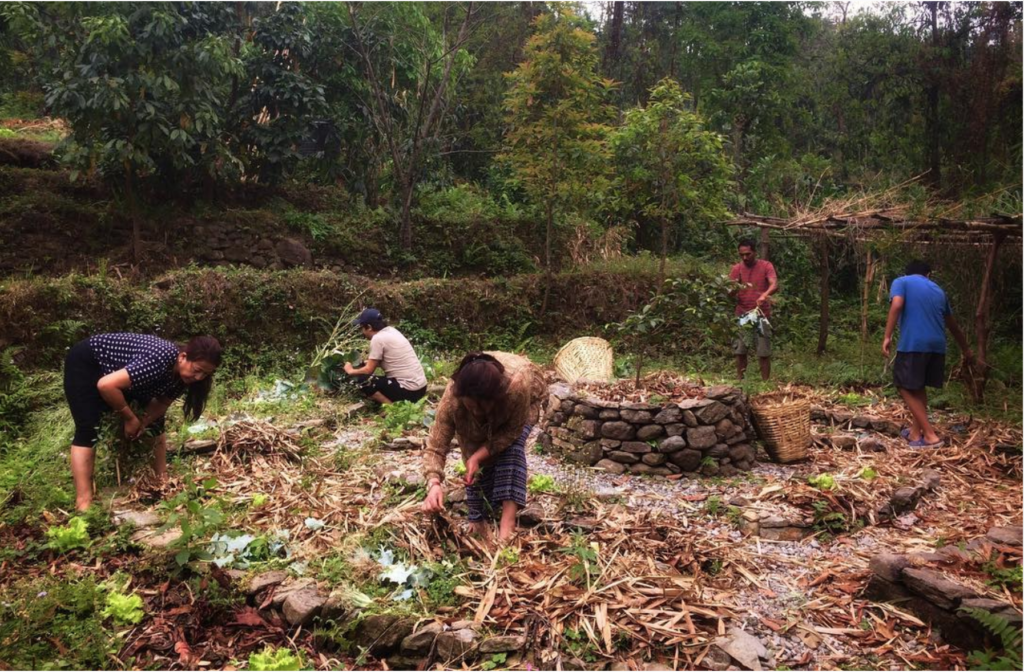
Permaculture farming at Petrichor Farms
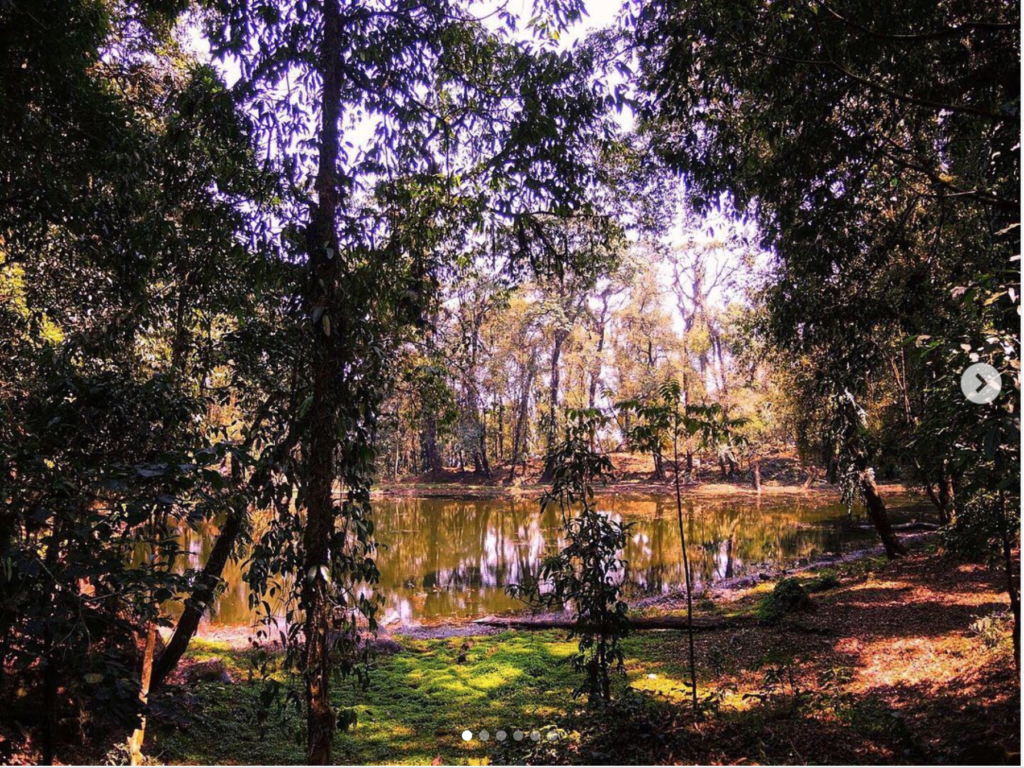
The couple started looking for local farms and organic growers to buy produce from. That’s when they decided to pick up the shovel and plant their first tree on the small barren paddy field owned by their family in the Gorubathan village of Kalimpong.
Soon, permaculture had found them and today, that humble piece of land is a green sustainable haven that the couple calls Petrichor Farms.
“The community here in Gorubathan has always been agrarian and has always grown its own food. Even though no one here knew the western word for it, permaculture has always been a way of life here. The use of chemicals was unheard of for the longest time. Instead, the people here use diverse cropping methods, crop rotation systems and other smart farming techniques. In fact, salt was the only commodity that the older generations purchased. Even cooking oil was extracted from mustard seeds at home,” says Blone.
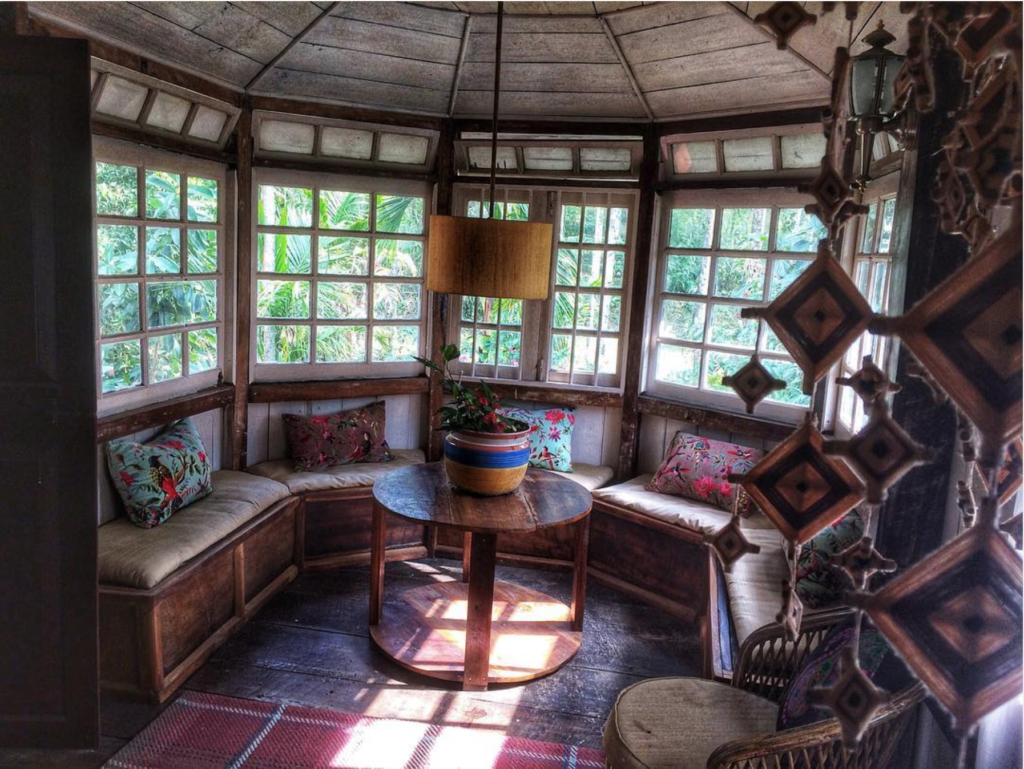
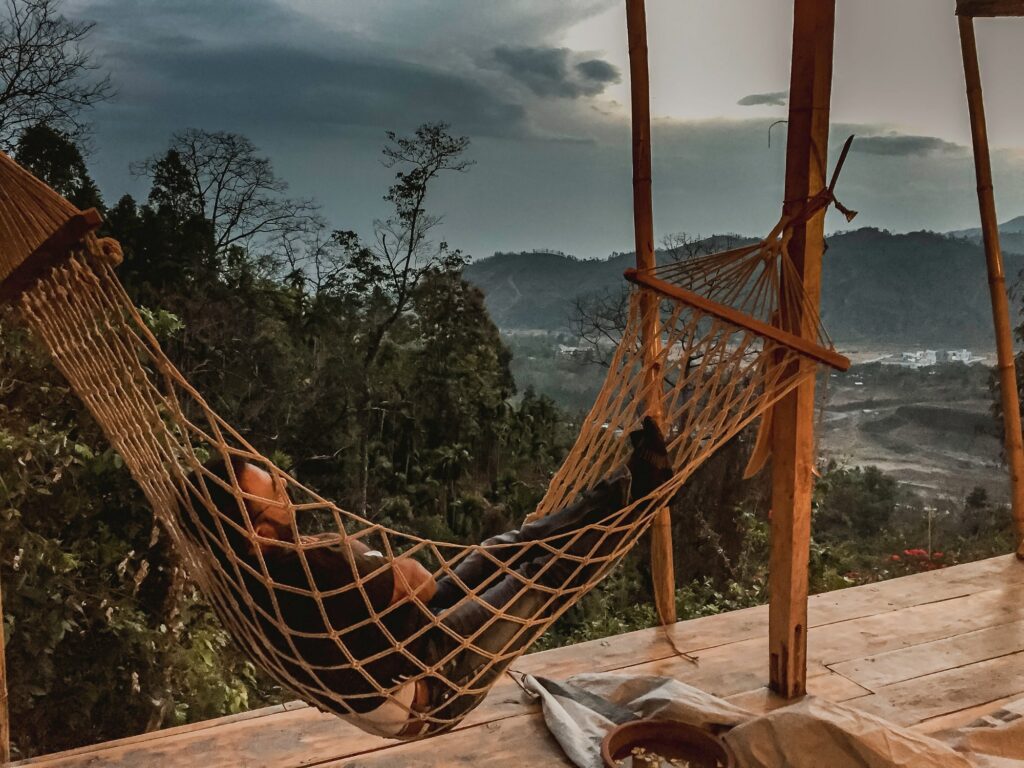
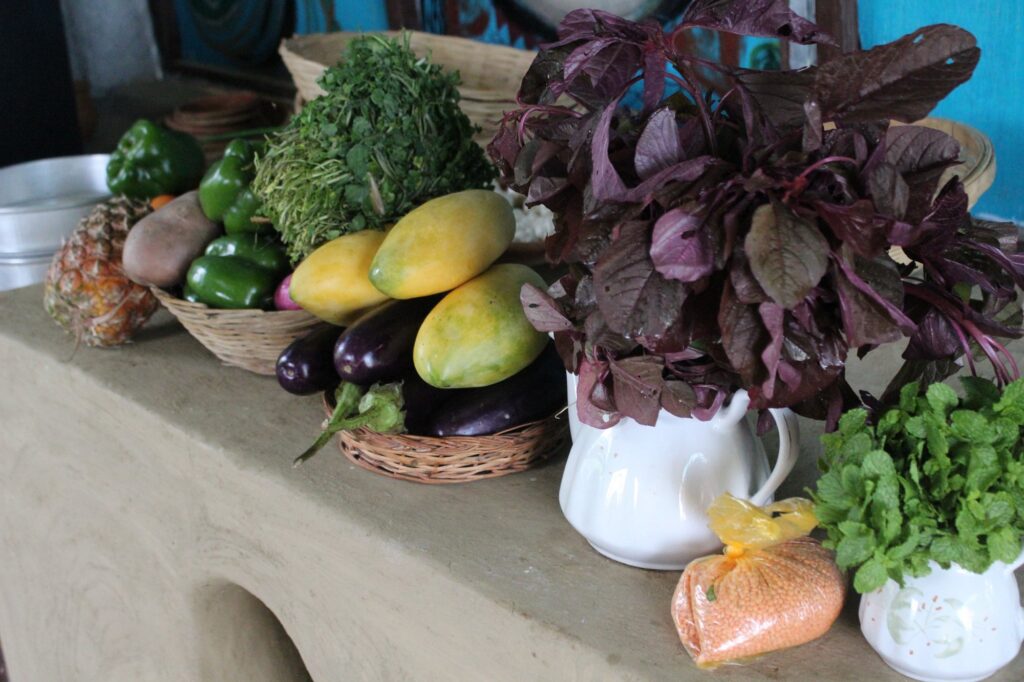
Organic fresh produce of the day
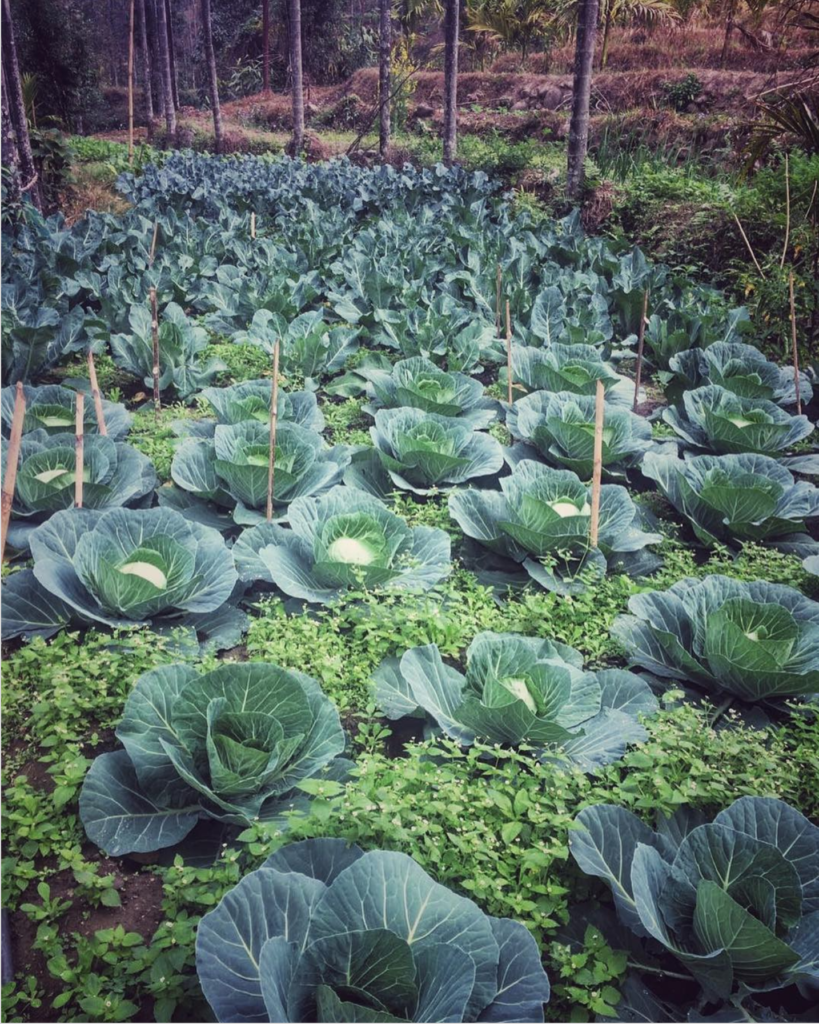
Organic cauliflowers in bloom
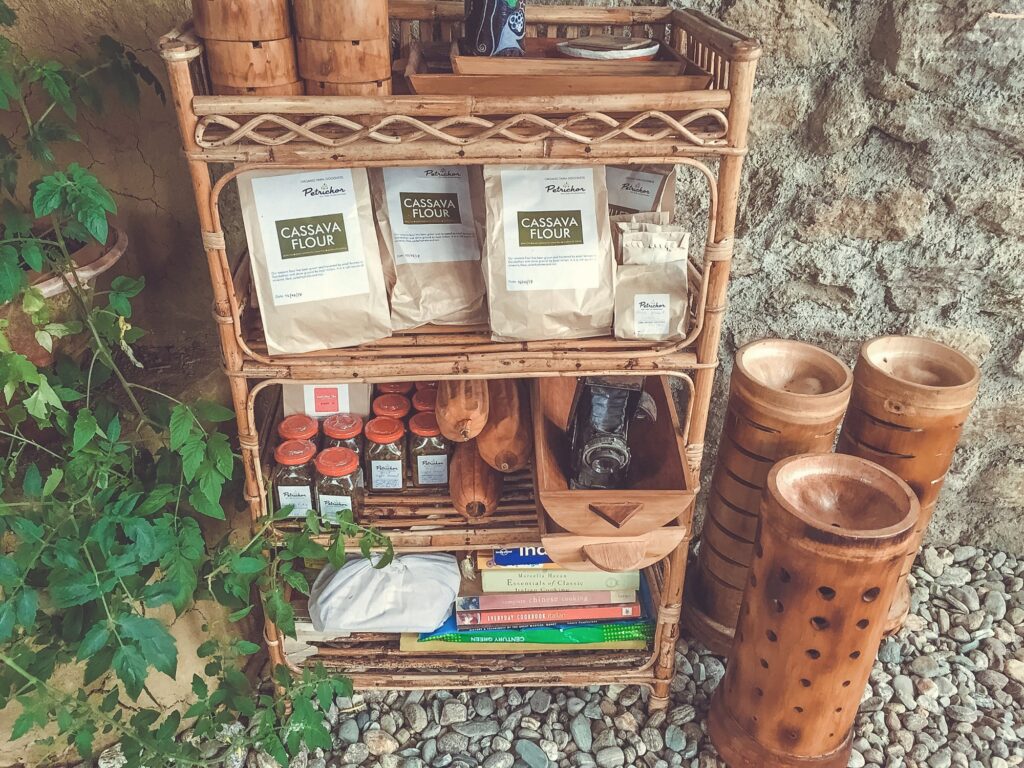
Organically produced cassava flour being sold under the farm’s eponymous brand name
In 2013, when the couple reached out to the local community of farmers and growers in Gorubathan, they realised living off the land had become more of a seasonal activity in present times—a family tradition that continued in one’s backyard but was unfathomable on daily basis.
“We started talking to local farmers and families to integrate with us and try to build a green community together wherein we could help each other. We benefit not just from our similarities but also our differences. Actually, in this process of looking after the land collectively and sharing resources, we celebrate a core permaculture principle—of upholding people,” says Pradhan.
However, it has not been an easy process for the couple. The biggest challenges are posed by consumer mindsets, which have been shaped by corporates, and government policies that promise easy solutions and steady profits but result in long term losses.
GEELI MITTI
Shagun Singh of Geeli Mitti, a permaculture farm and homestay, has been working to create her own green community in Pangot, Nainital. She also has similar experiences to share.
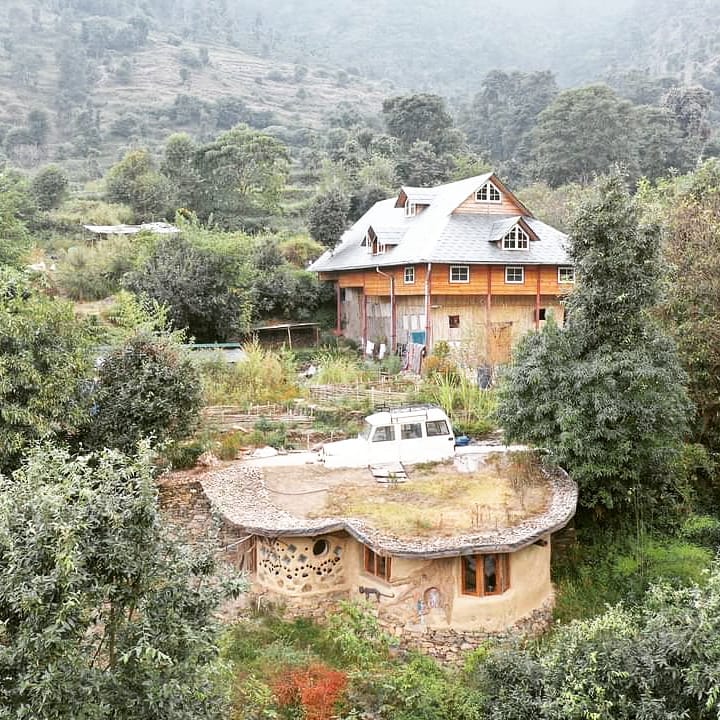
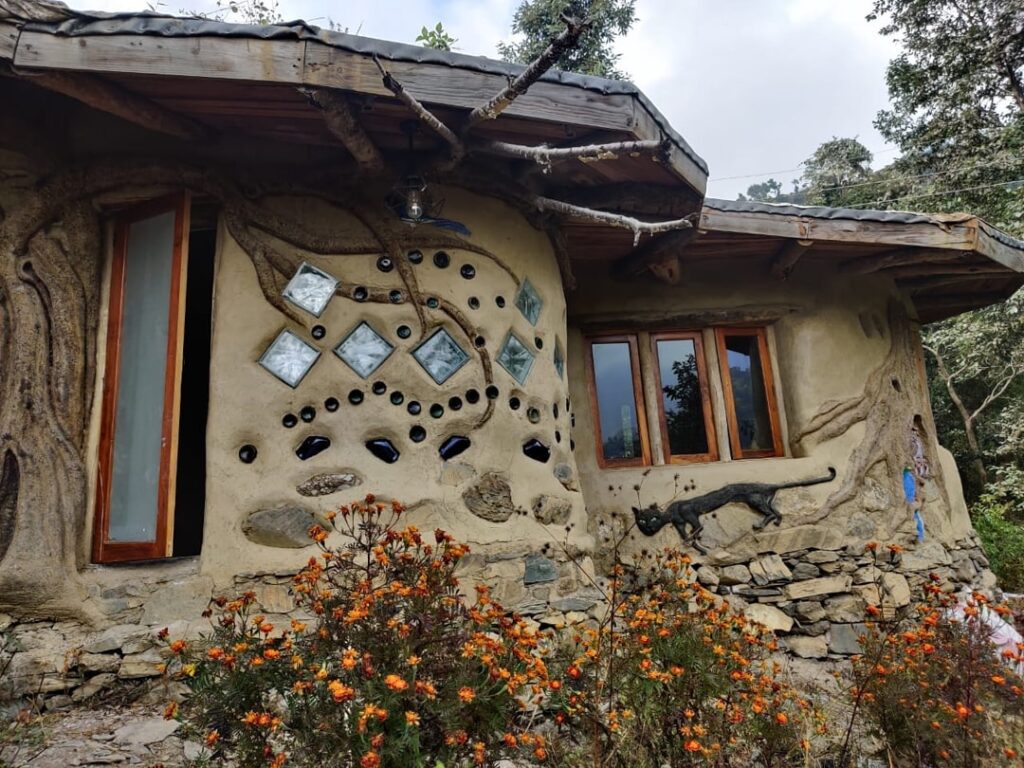
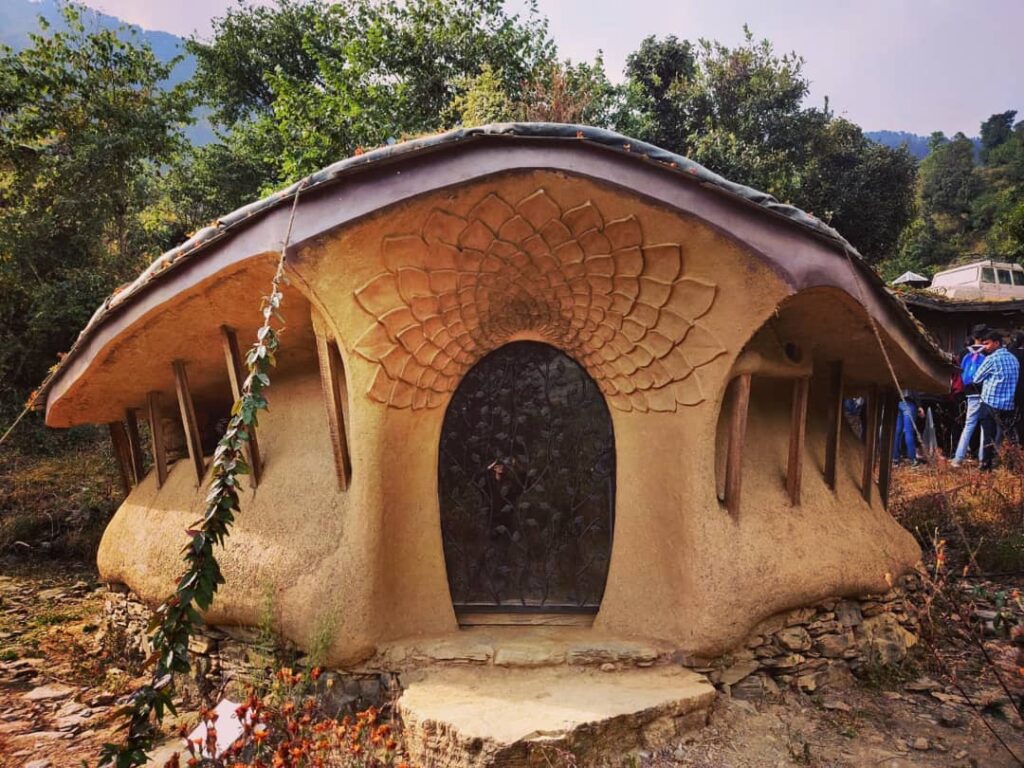
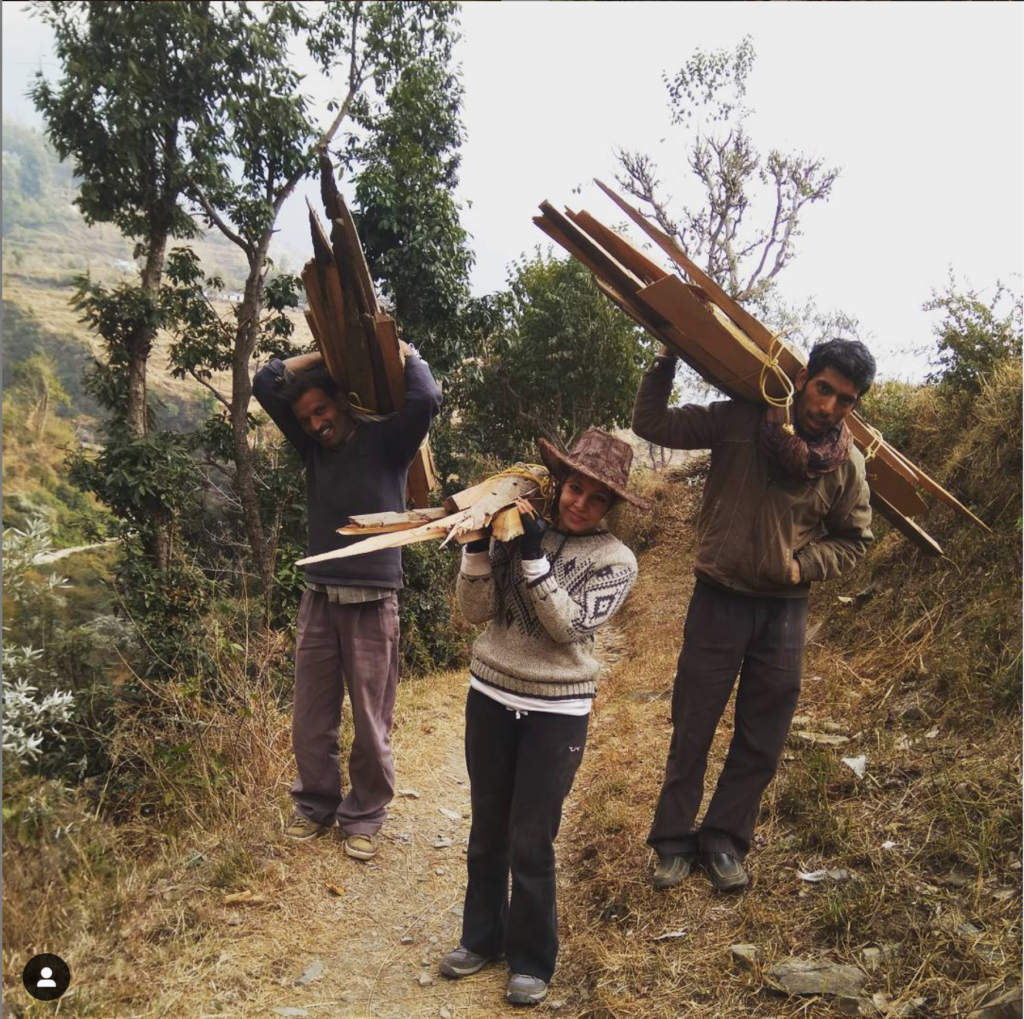
Shagun Singh (leading), Founder, Geeli Mitti
“It’s not that we don’t have the resources to live in harmony with nature. The common perception is that sustainable living is an expensive and exacting affair. Ironically, we have always been a sustainable society. The traditional Himachali homes, for example, with their mud walls and thatched roofs stay warm in winters and cool in summers. They are earthquake resistant as well. Sadly, they are now believed to be the poor man’s abode. So when the government announces subsidies to build pukka homes with bricks and mortar, the common man signs up eagerly. Concrete construction is not sustainable. The walls develop cracks. There’s water seepage in the monsoons. We blindly follow “development”, which is actually taking us further and further away from an ecologically conscious lifestyle,” says Singh.
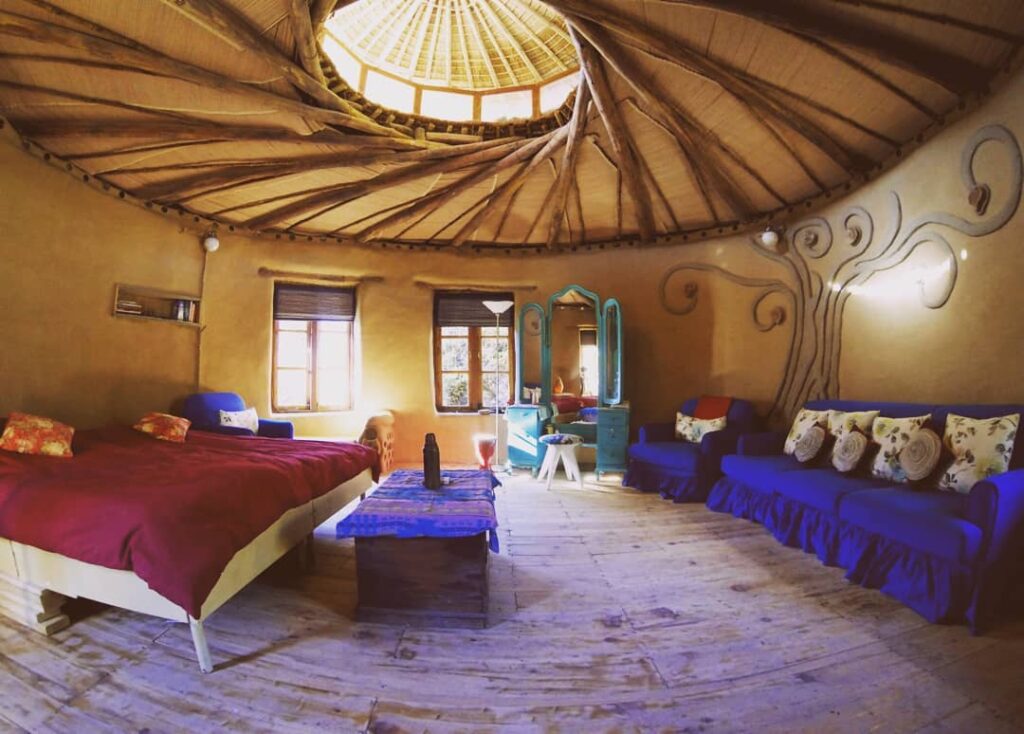
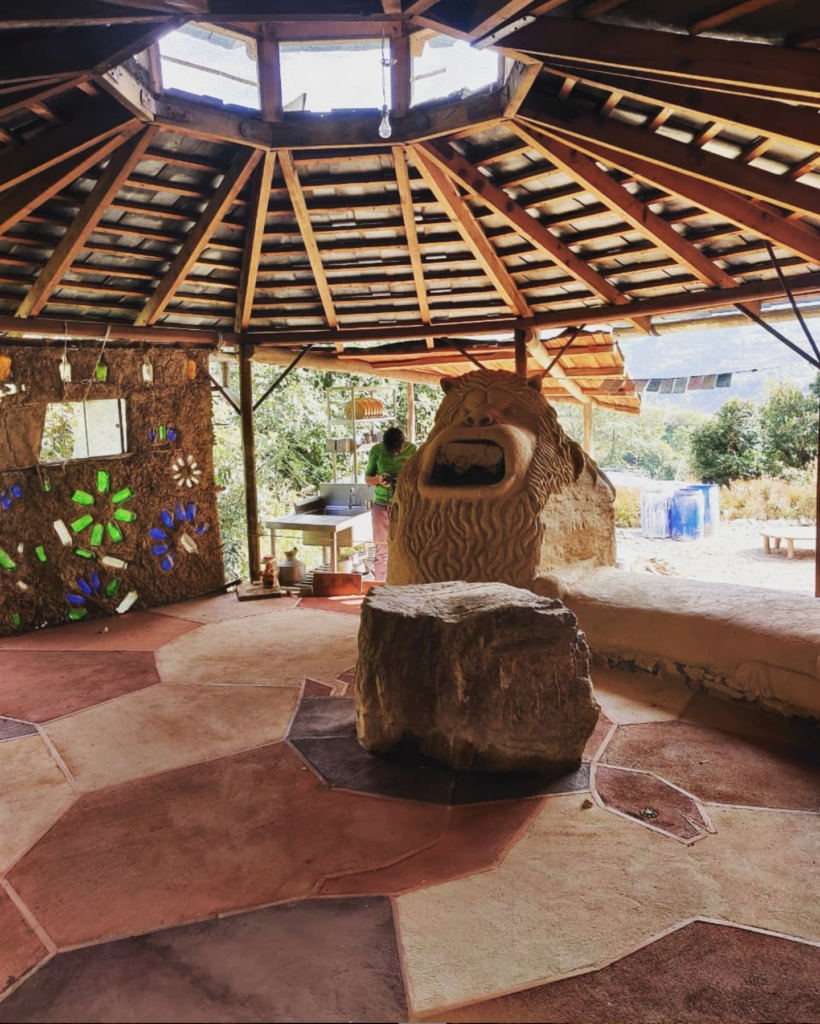
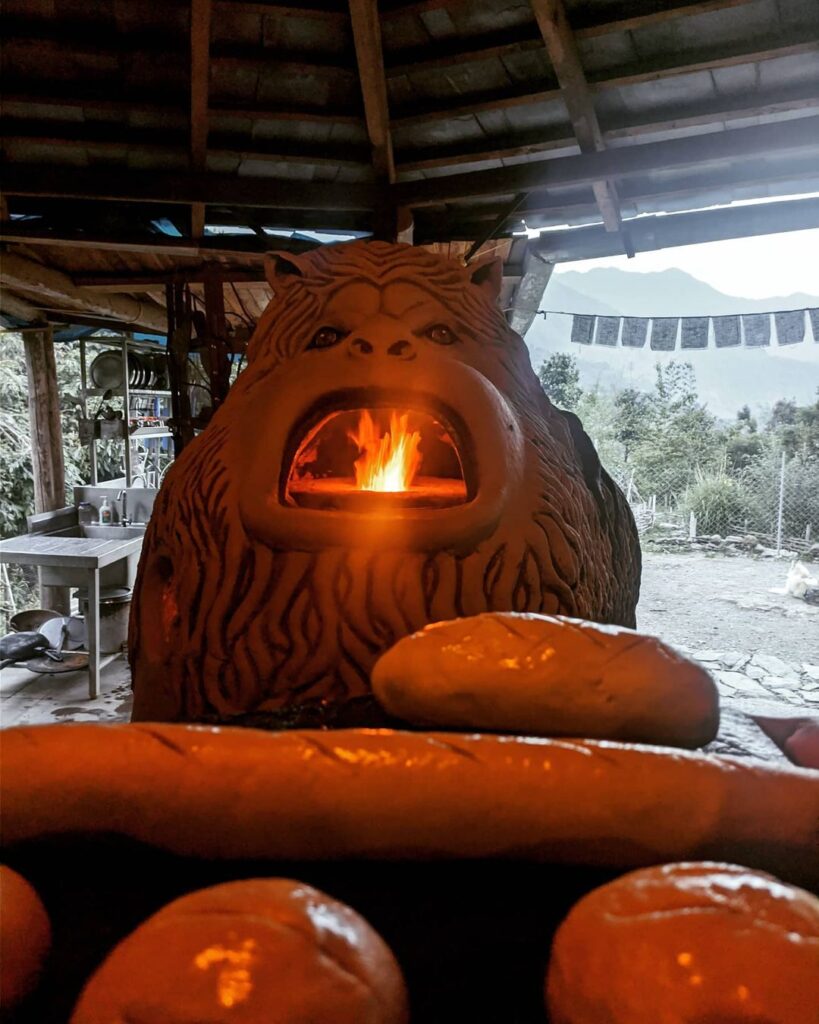
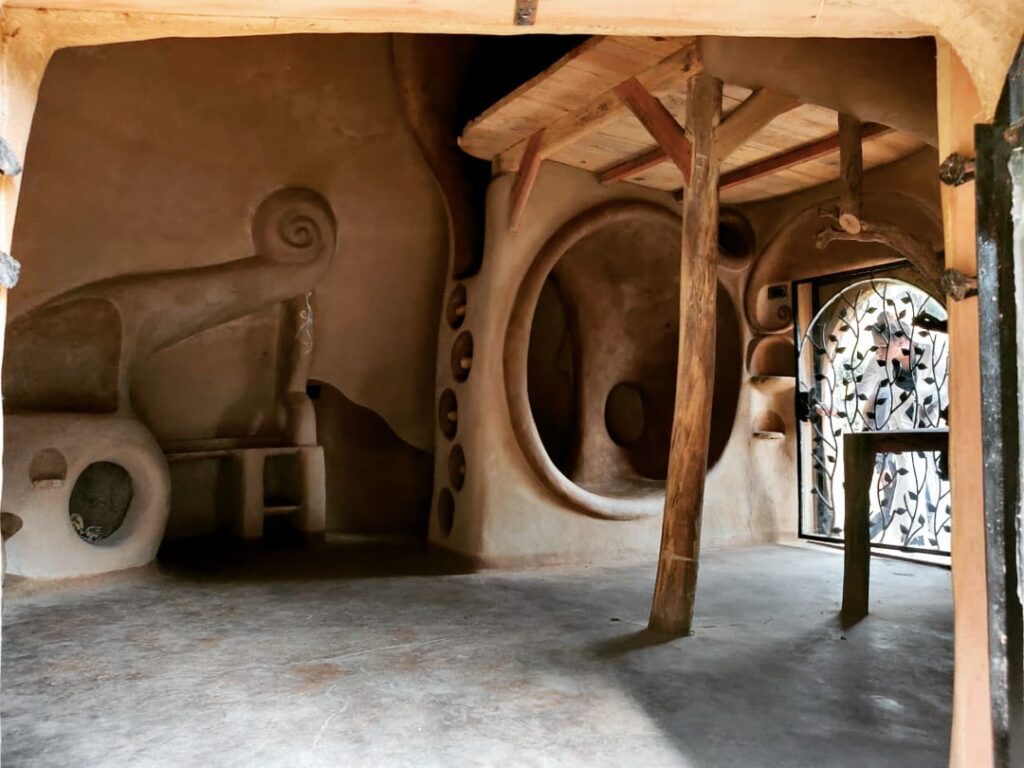
Singh originally set up her space as a personal quest for alternate living. It was her decision to walk away from city life and live closer to nature. However, the change of lifestyle brought about a change of priorities and she found herself veering towards creating a community that upheld and celebrated sustainable living.
It set her off on a journey to create natural buildings using whatever the land offered—hay, wood, mud, dung, etc.
“I find it strange when people react with questions like – will this last? The world over, the oldest archeological sites are all natural buildings. They were not built using cement or metal rods but have lasted for centuries. How easily we accept that. But when it comes to relying on natural buildings for our own lives, it’s such an alien concept to us. We just can’t trust it. It shows how far we have moved away from nature in our thoughts. Of course, once the masses accept something then it continues endlessly. Herd mentality. Maybe if we push natural buildings long enough, offering subsidies and financial benefits to pursue these traditions, things might change sooner than expected,” she says.
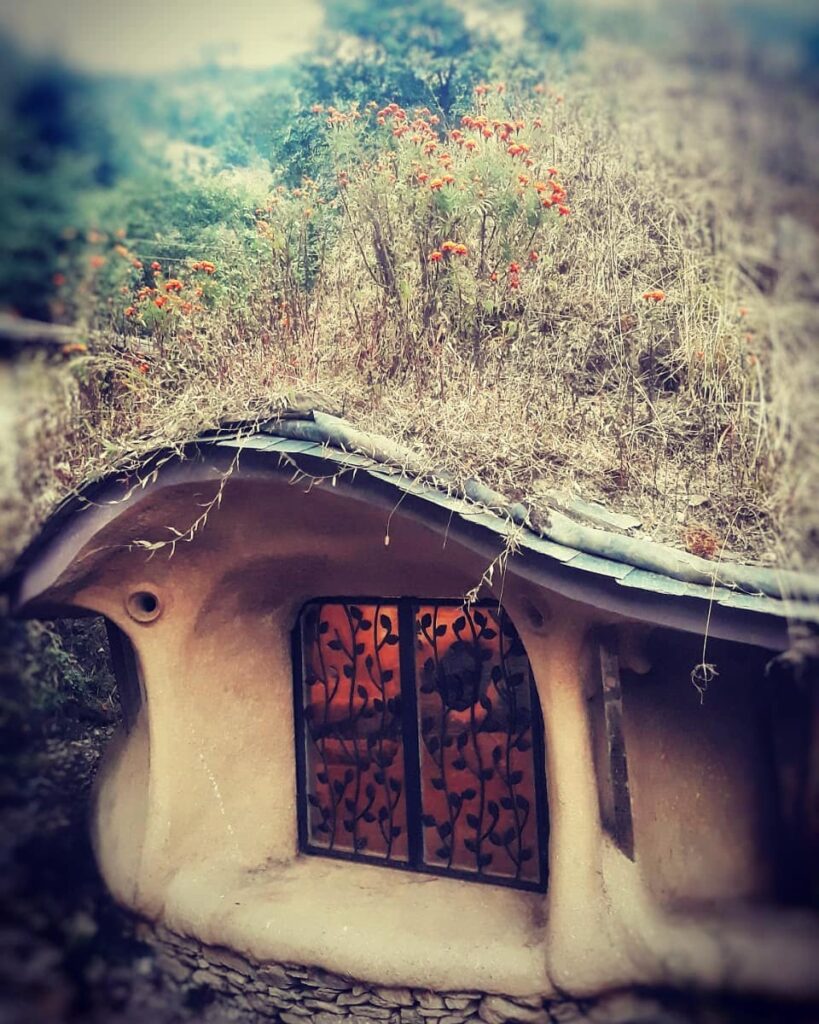
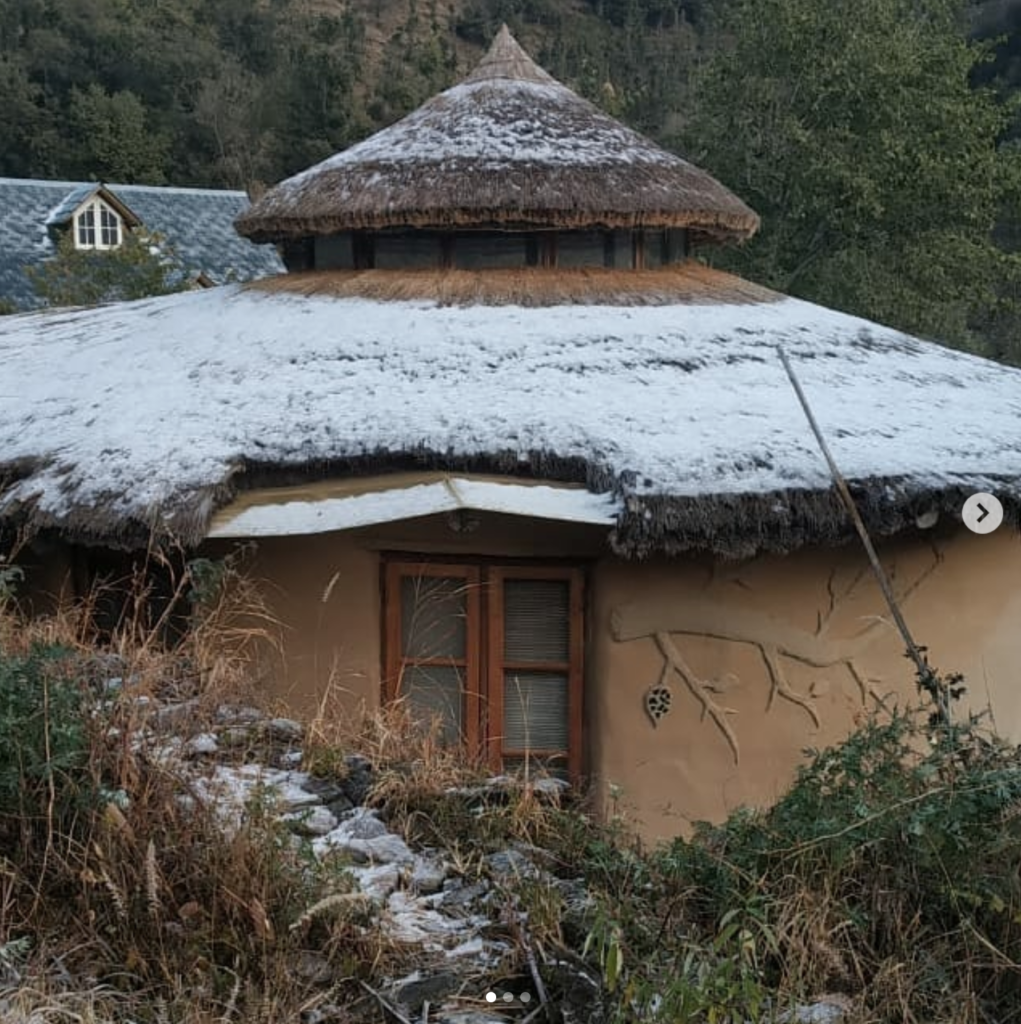
Since the 1990s, global media has been imposing big brands upon consumers. But millennials are more and more disinterested in buying houses, making babies or sticking to 9 to 5 jobs. In fact, before Covid-19 hit the pause button on us, a high number of young Indians were zipping around the world and across India, bitten by the travel bug.
This mass appeal for travel triggered many discussions about responsible tourism and the need to reduce carbon footprints. Discerning travellers the world over have been ditching conventional hotel stays in a bid to be more eco-responsible.
Now, especially post Covid-19, spaces like Petrichor Farms and Geeli Mitti, offer much needed guidance to those keen on discovering an alternate lifestyle.
It would not be incorrect to say that such spaces are changing the way we look at the tourism industry where meaningful, immersive and slow travel has been picking up momentum.
Travellers visit destinations looking for new skills to learn, and seek volunteering experiences they can’t get back at home. Both Petrichor and Geeli Mitti host workshops that teach permaculture techniques and natural building basics while encouraging visitors to uphold the spirit of a space which has self-sustenance at its core.
But these two spaces are not alone in the endeavor to embrace natural living. Over the past decade, various eco-friendly names have cropped up in locations around India. The Goat Villages and Peepal Farm are other prominent communities that work closely with locals in natural settings.
THE GOAT VILLAGES
Founded by Roopesh Rai, The Goat Villages is a bouquet of farm retreats and home stays in Uttarakhand managed by The Green People, a for-profit impact organisation working towards rural development.
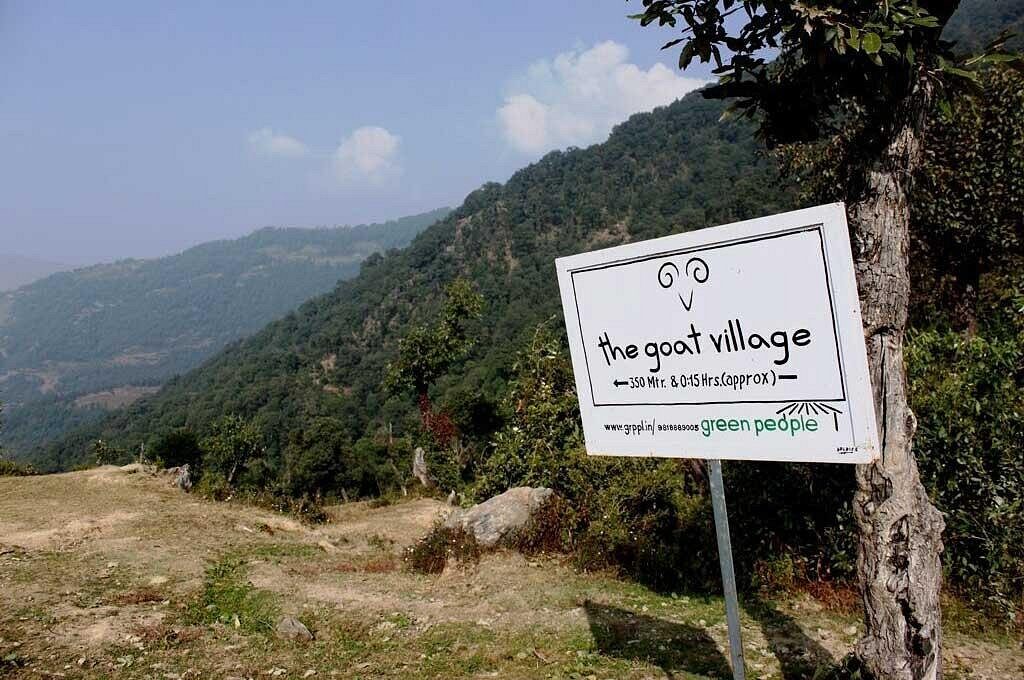
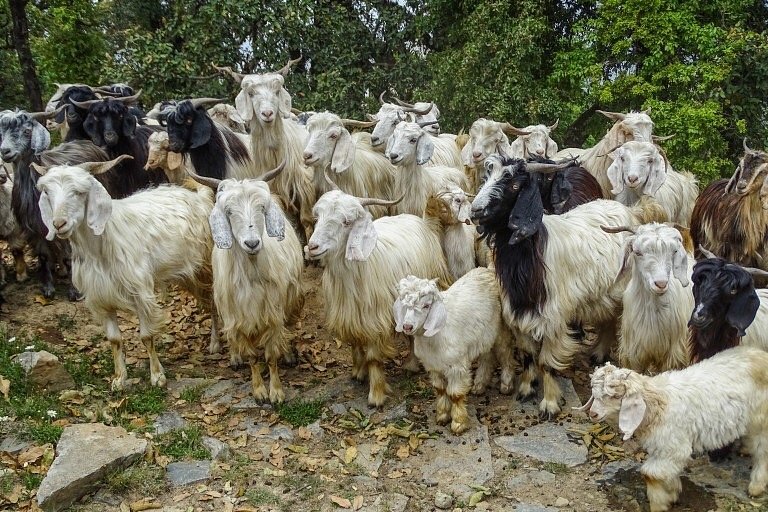
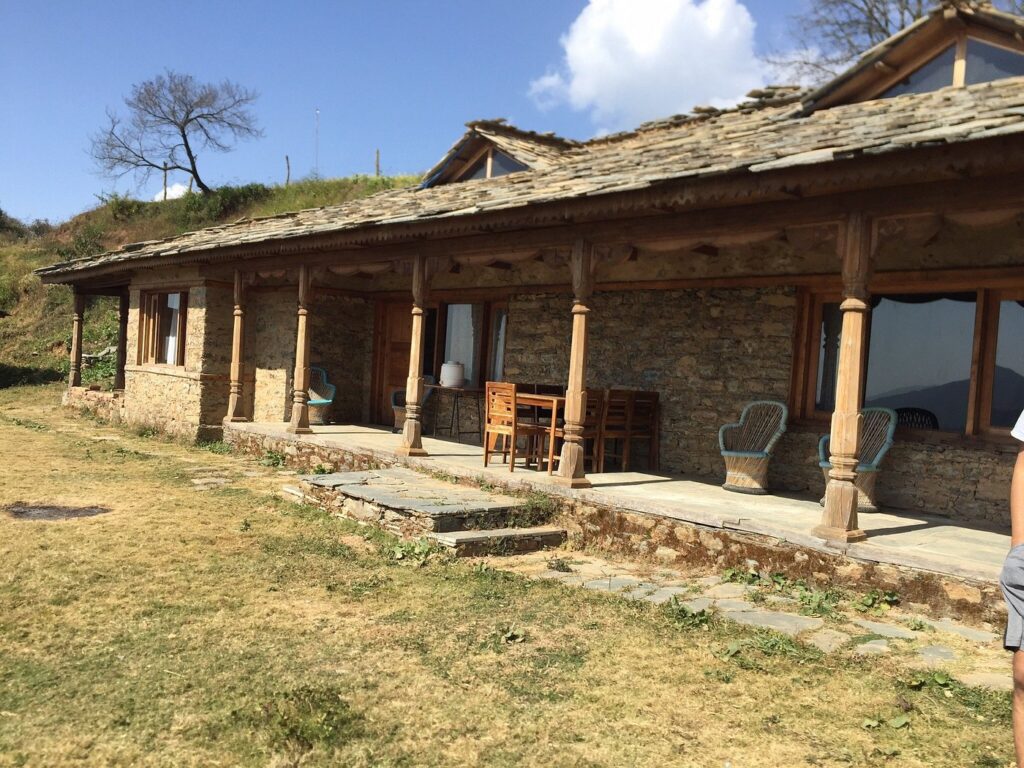
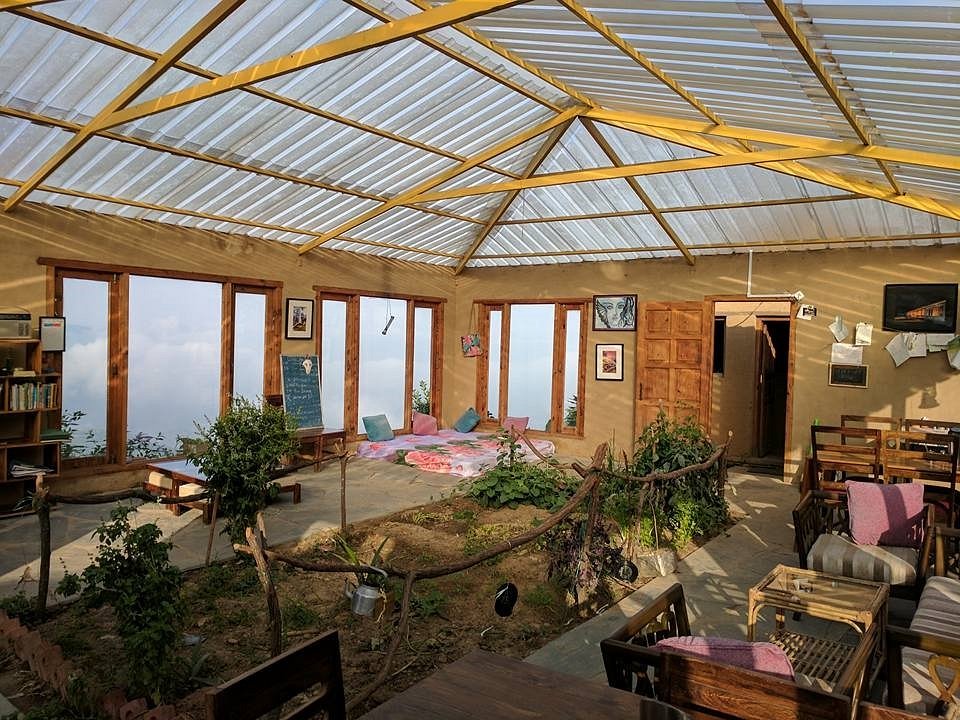
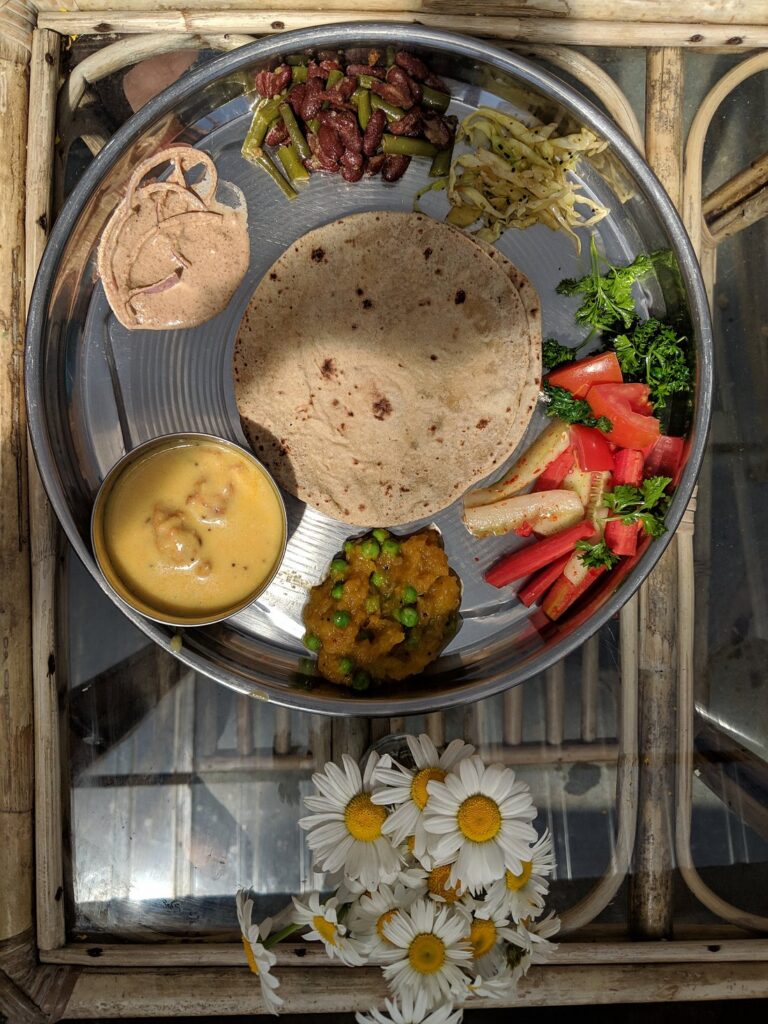
Organic vegetarian thali
Besides welcoming guests from across the nation to the experience traditional Garhwali living, The Goat Villages also retails organically grown farm produce under its brand Bakri Chhap.
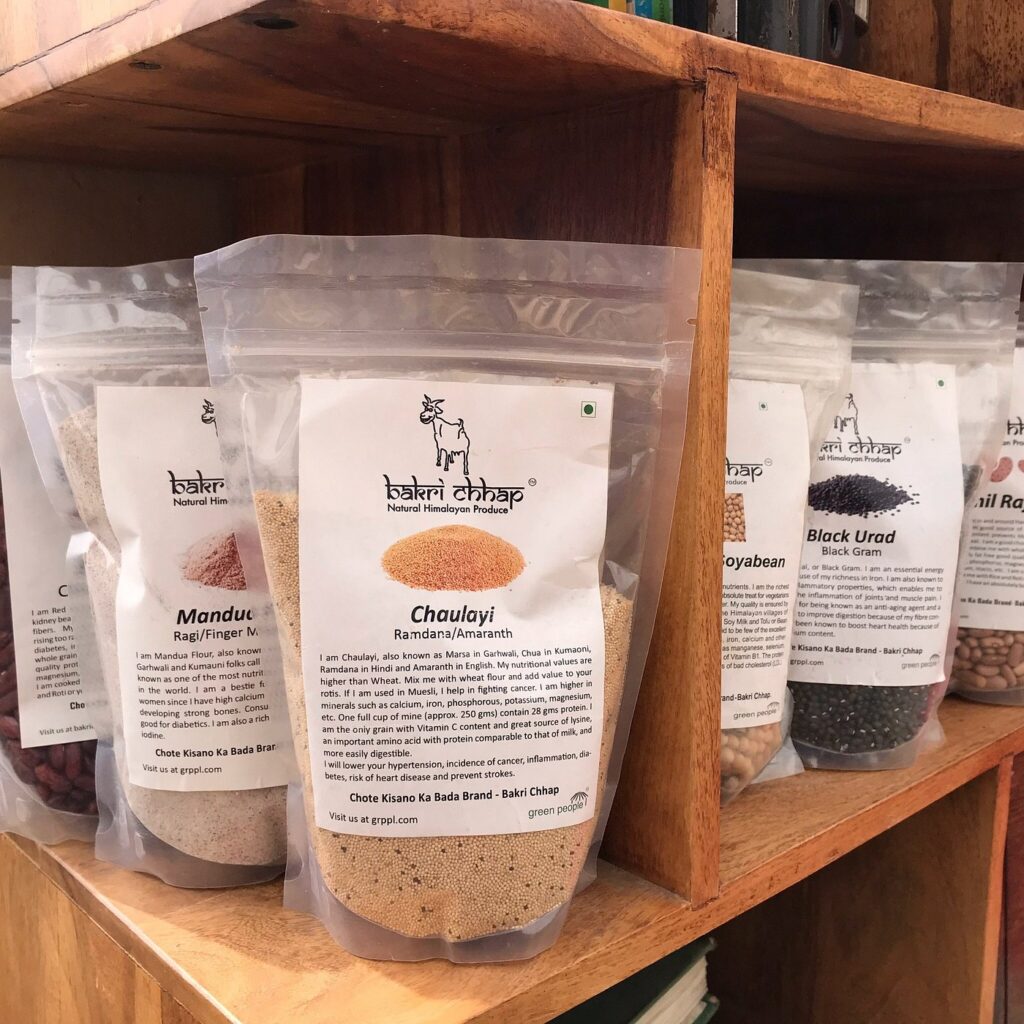
The Goat Villages retails organically grown farm products under its brand ‘Bakri Chhap’
PEEPAL FARM
Peepal Farm, located in Dhanotu village, near Dharamshala, Himachal Pradesh, is a stray animal rescue and organic farm. This translates to tracing injured strays (goats, cows, donkeys, dogs, cats and more); bringing them to their farm, giving them medical care, providing nutrition and love, and often, giving them shelter for life.
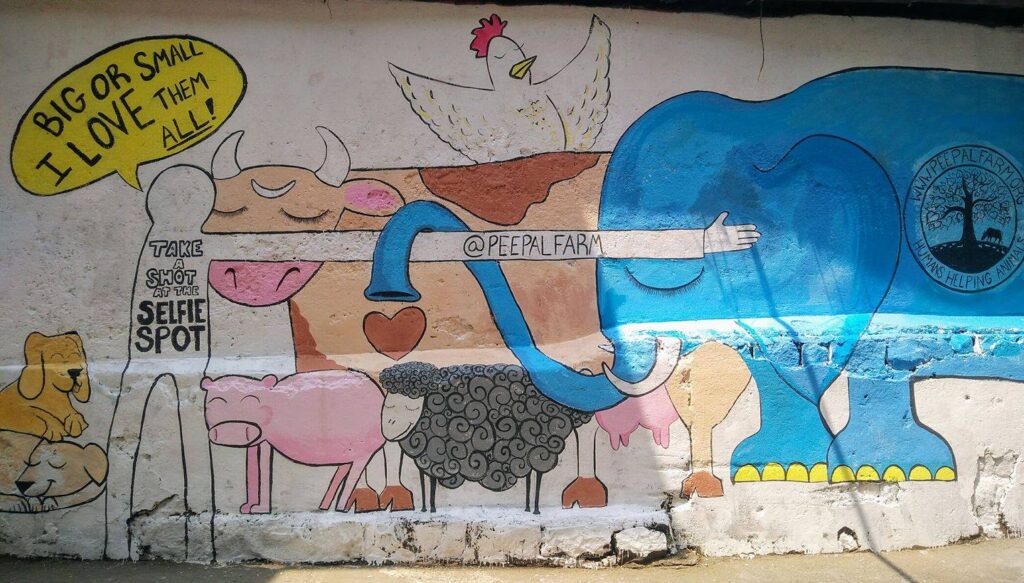
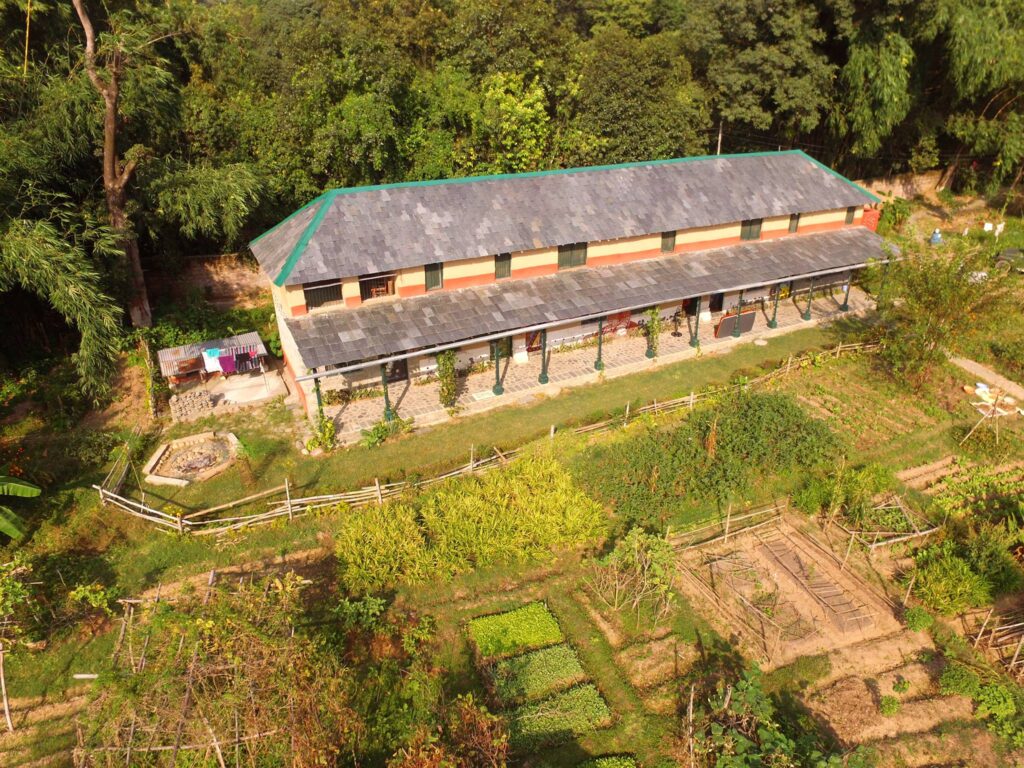
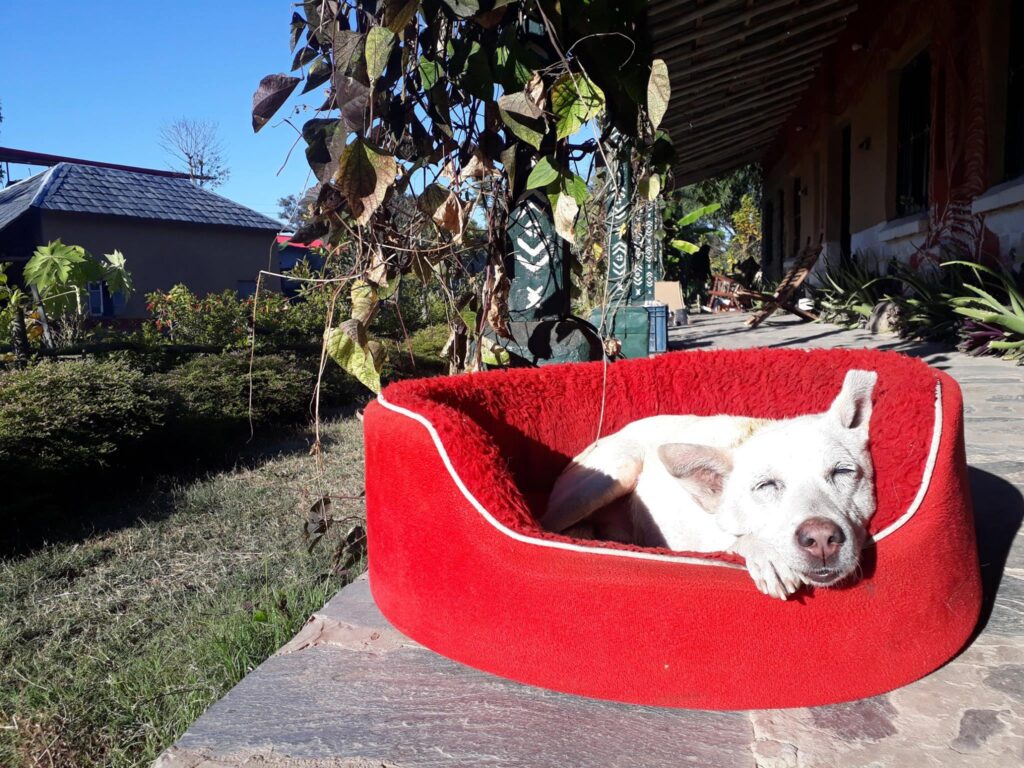
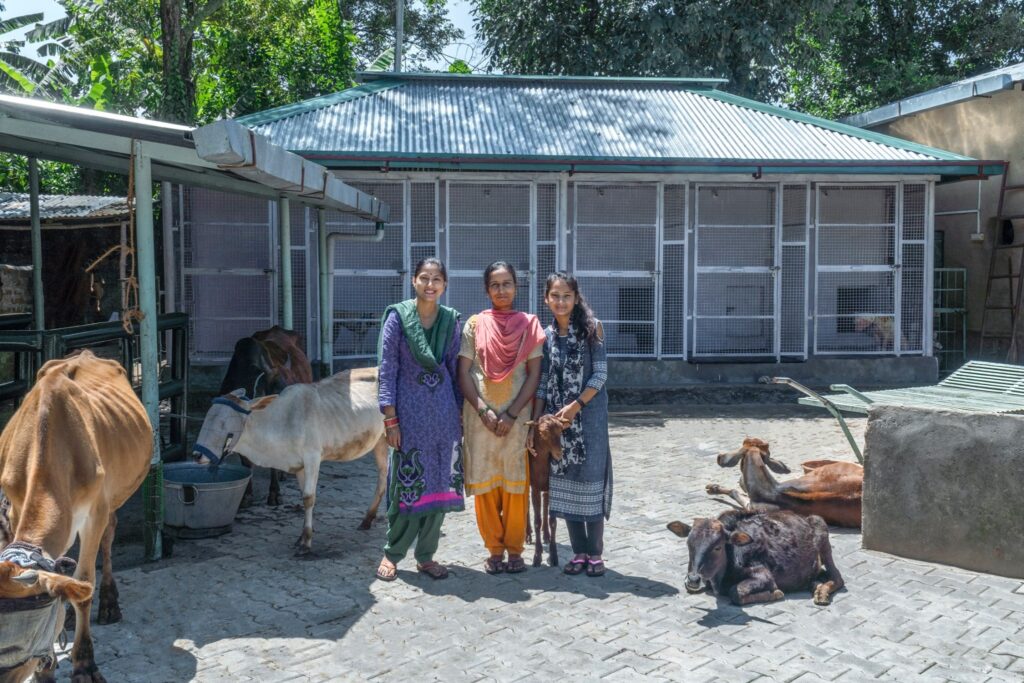
Rescued animals at Peepal Farm
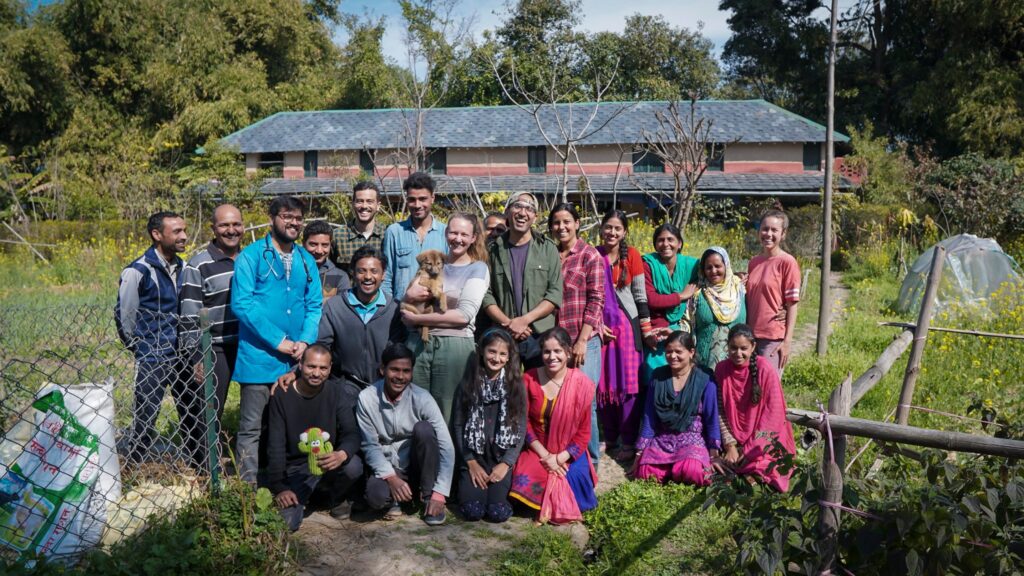
Team Peepal Farm
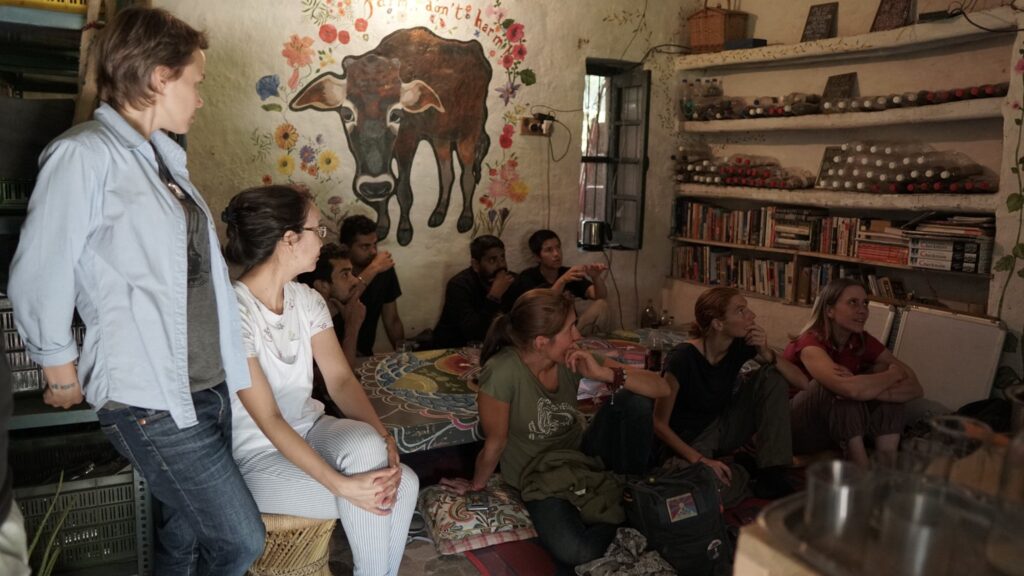
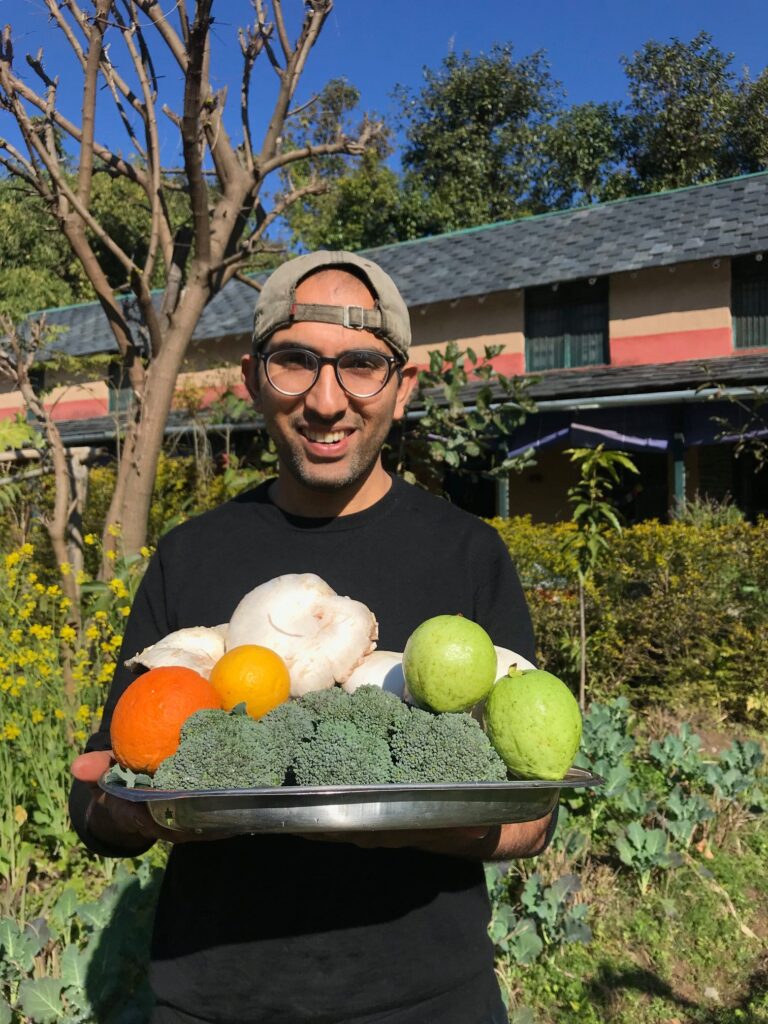
Robin Singh, Founder, Peepal Farm
Co-founded by Robin Singh, Joellen Anderson and Shivani Bhalla, the farm attracts a swarm of volunteers and interns from around the country and the world, joining them on regular basis. Similar to The Goat Villages, Peepal Farm also curates its own range of food products–most of which are derived from organic produce grown on the farm-under its eponymous brand.
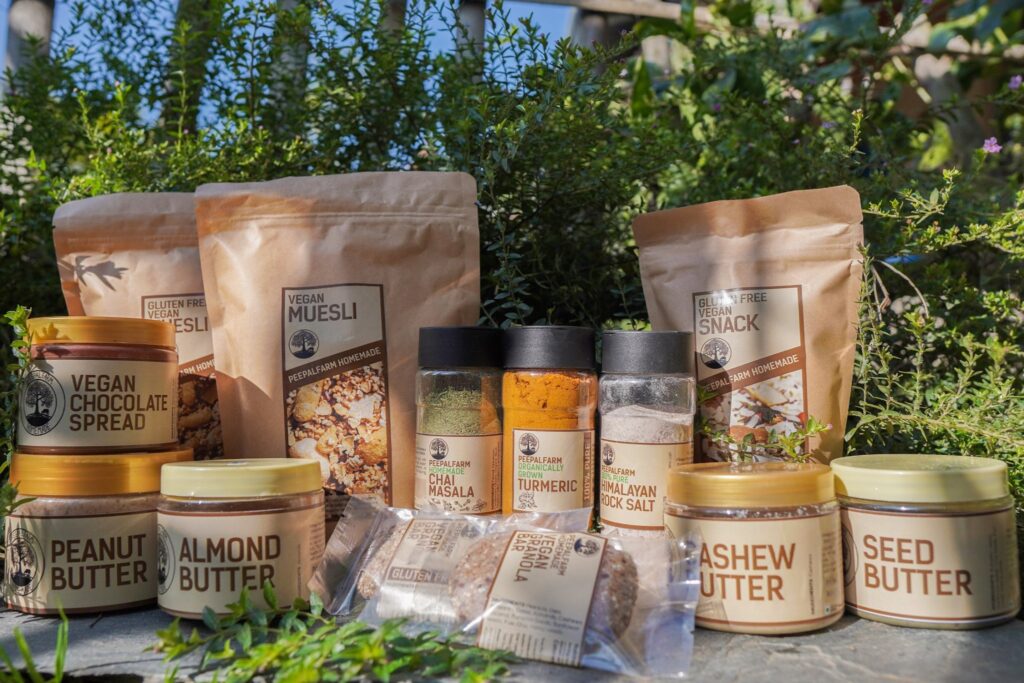
Peepal Farm also curates its own range of food products–most of which are derived from organic produce grown on the farm-under its eponymous brand


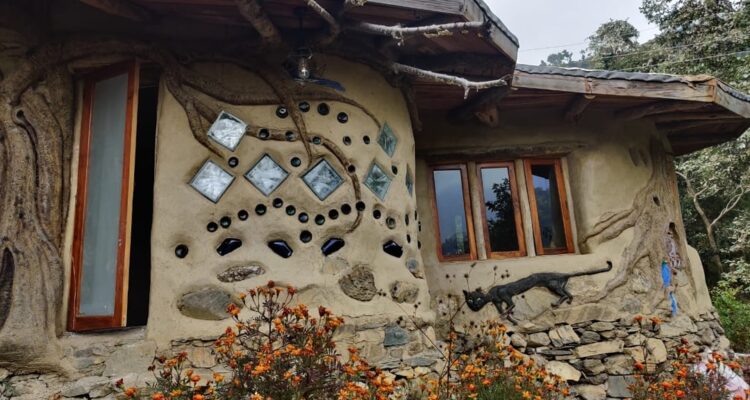
I wish to join ….. How to do this ….. It’s fantastic ….
Kindly contact the respective parties directly through their websites or social media pages.
Very interesting I am interested to know about New starters.
I’m a social worker and I’m Associated with Organic Farming Vadic Method CLUSTER in Gaya District Block Konch and Tekari.
I’m a digital Volunteer Of PMO.